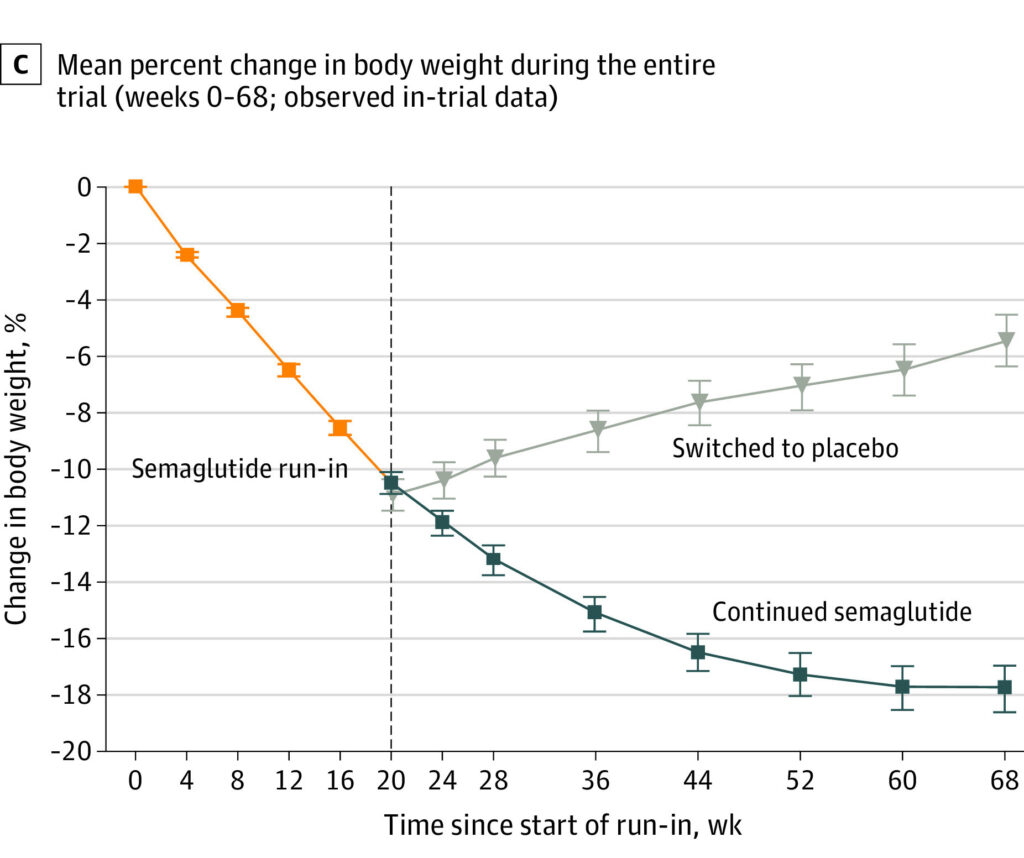Now, some of you aren’t going to like this blog. You might not like me very much either. However, I am just the messenger–I believe the kids used to say, “don’t hate the playa, hate the game.” This blog topic is something that I need to address, as it is a question I commonly get asked. Generally, this comes up when an individual struggles to lose weight, and either myself or another care provider has suggested they go on a weight-loss medication.
“Do I need to stay on this for life?! Or, can I just reach my goal weight and then come off the drug?”
I then must have what, in some cases, is a heartbreaking conversation and repeat one of my least favourite taglines:
“Whatever you do or use to lose weight, you MUST maintain it to keep the weight off!”
General Responses to the Maintenance Tagline
 Generally, at this point, someone will say, “If that is the case, I won’t be going on medication.” The next group says, “OK, I understand. Let’s give it a try.” Finally, a small group of Karen’s tell me, in a much less polite way, “Go catch a chicken.” These responses are about 60-35-5.
Generally, at this point, someone will say, “If that is the case, I won’t be going on medication.” The next group says, “OK, I understand. Let’s give it a try.” Finally, a small group of Karen’s tell me, in a much less polite way, “Go catch a chicken.” These responses are about 60-35-5.
(PS. I apologize to the people named Karen out there. Gen Z, I believe, is to blame for your name being so targeted these days.)
Anywho, maintaining weight loss would include staying on medication if it helped you in your weight-loss efforts. Now, I will say there is a small caveat in that maybe 1% of people can keep the weight off when the medication is gone, but they have made some monumental changes to their lifestyle and worked their ass off to do so. I never say something is impossible, but the above is exceedingly rare.
Since Ozempic (the newest soon-to-be obesity medication on the market – check out my previous blog for more details) is all the rage right now, I want to share a new study that just came off the press demonstrating my point.
What does the research say?
Rubino et al. completed a lovely little randomized withdrawal trial from 2018 to 2020. They took 902 individuals that were considered to have obesity (BMI ≥ 30.0) or were considered overweight (BMI ≥ 27.0) and had one or more weight-related conditions. They excluded individuals that had diabetes from this trial. They then put all the participants on Ozempic and had them increase their dose to 2.4mg once weekly while also providing lifestyle interventions in the form of a calorie deficit diet (500-cal/day deficit), physical activity (150-mins/week), and monthly counselling sessions, over a 20-week period. The participants were then randomized into two groups. The first group continued on Ozempic 2.4mg once weekly, and they switched the second group to placebo for the next 48 weeks. Both groups continued with the lifestyle changes as well!
During the first 20 weeks, when every participant took Ozempic, there was ~10.6% or an average ~11.0kg reduction in body weight from baseline. Pretty fantastic results for less than a 6-month period. There were also improvements in blood pressure, blood sugars, waist circumference, and lipid profiles.
Are you ready for the hard part? What happened over the next 48 weeks between the two groups?! Remember how much you dislike the game!
So, Rubino and friends found that the individuals who continued on Ozempic lost another ~8% or ~7kg at the end of the trial. The individuals who were switched to placebo gained ~7% or ~6kg of their body weight back.

What does it all mean?
I know. Trust me, I know. Obesity is, unfortunately, a chronic disease. Managing our weight is not a simple process. If it were, we wouldn’t have an obesity epidemic, and I would probably still be in school trying to figure out what to do with my life. The reality is, your weight is primarily dictated by things that are entirely out of your control. Sometimes, in order to manage the things we can’t and can control, we NEED help. That is totally OK! You are not a failure for needing to be on a medication – even though the Karen’s of the world might say otherwise.
Before you click off my page and never come back, let me tell you about another interesting result that I noted in this trial. In the group that continued on Ozempic, 15.2% of the individuals gained some amount of weight back (this again shows the chronicity of weight management – even with medication, they still gained weight back). In the placebo group, 82.4% of the individuals gained some amount of weight back. So that means over 15% of the individuals that lost weight initially with Ozempic ultimately kept the weight off when they came off the medication. That is much larger than my 1% caveat I mentioned above.
 Now I don’t want you to start getting excited and ask if I have caught that chicken yet. Without looking at this trial’s raw data, I have no idea about the characteristics of this group of people – i.e. how much weight they lost to begin with, what chronic diseases they may or may not have, etc. For all I know, they may have lost 1kg on Ozempic and then managed to keep that 1kg off when they were switched off.
Now I don’t want you to start getting excited and ask if I have caught that chicken yet. Without looking at this trial’s raw data, I have no idea about the characteristics of this group of people – i.e. how much weight they lost to begin with, what chronic diseases they may or may not have, etc. For all I know, they may have lost 1kg on Ozempic and then managed to keep that 1kg off when they were switched off.
The study also did not mention anything about this small group. The research was pharma funded, so I’ll leave you to speculate on that reason (it also wasn’t the point of this study). Regardless, I am curious to know a bit more about that little group, and I am sure I am not the only one who noted it. Hopefully, someone much smarter than myself will have picked it up as well and can write up an excellent analysis for all of us. Regardless, this group would have still had to overhaul many of their behaviours that caused them to gain weight and maintain those behaviours to keep the weight off.
Final Thoughts
In conclusion, though, Obesity is a chronic disease. Similar to how we manage high blood pressure and diabetes, many individuals will need not only lifestyle interventions but also medications. As with anything, that won’t apply to everyone, but it will apply to a majority. Again, there is nothing wrong with this fact. The longer medicine keeps us alive, the more chronic diseases we will see emerge that require treatment. We aren’t dropping dead from a common cold in our 30s like olden years, which is fantastic.
Always remember: Your disease does not define you. It is a part of you, but it is not who you are.
Till next time, my friends!
– Dr. Dan
Reference:







